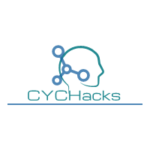Before you can successfully implement a skills-based hiring approach, you’ll need to develop the skills framework within which you’ll determine the skills needed for the various positions in your company. In other words, developing a skills framework first requires defining the skills needed.
In addition to the ability to do the job, candidates should also possess the values and behaviors required to fit within the organization and further its goals. After all, values tend to influence actions, which in turn inform the ethics of an individual. This can be just as important as the ability to do the job competently.
Table of Contents
Why a Skills Framework Matters
Having a structure within which performance can be evaluated provides workers with the guidelines within which they’ll be expected to perform their duties, how they’ll be expected to perform them and what they’ll need to know to do so.
This can also make the recruiting process more efficient, as well as evaluations of current employees. The framework is a baseline upon which the standard for competence and excellence can be established. The framework also makes the documentation process easier to accomplish.
With the proper skill framework in place, the path to promotion can be more readily identified. It also makes it easier to provide training. Both of these considerations figure prominently in employee retention. The framework also makes it easier to plan for the future and change management becomes easier to accomplish.
How to Develop a Skills Framework
1. Define the purpose of the framework
In most cases, the idea is to establish the procedures by which work is accomplished. The framework also informs performance reviews, compensation evaluation, and wage increases. A skills framework is also useful for hiring, in terms of evaluating candidates to fill vacancies. It is important to also be mindful of the future growth of your company, as well as long- and short-range goals when making these determinations.
2. Gather the data you’ll need to construct the framework
Talking to employees, observing the ways various tasks are accomplished and taking note of how particular challenges are overcome is important. Carefully crafted surveys and questionnaires can be helpful in this regard.
Job analysis is also important to this endeavor. It’s the best way to discover the skills and competencies employees must possess to be good at their work. Be certain to involve the people who actually do the work, in order to get adequate assessments.
3. Construct the framework
The behaviors and skills you observed in step tow can be grouped into the competencies needed to staff each position. Categories should be established to aid in the refinement of the groupings. In some cases, subgroups will emerge, which will also need to be categorized. Naming competencies will make them easier to track, define and evaluate.
4. Review the framework and present it for evaluation
Make sure all key members of management and labor teams are included in the evaluation process. Be ready to make adjustments as feedback is received and processed. The goal is to get buy-in from everyone across the board before implementing the framework as policy. Communicating with the people expected to perform to it is crucial. The more you share, the more accurate the framework will be and the easier its implementation will proceed.
5. Prepare to implement the framework
Develop the training programs you’ll need to make it function properly. Establish methodologies by which praise will be delivered and demonstrated. Be certain the framework dovetails with the goals of the company and its organizational values. And, above all keep things as simple as possible. Also, make it a point to announce when the tenets of the framework will start to be enforced.
6. Be ready to evolve the framework
As your company grows and takes on new challenges, you’ll need to evolve the structure to accommodate change. The framework should be reviewed on at least an annual basis to ensure its continued relevance to your business.
Developing a skills framework for your company brings many benefits and advantages into play. The key is to make sure all of the relevant people have input throughout the development and implementation process, listen to what they say—and act upon what you learn.
Alex is fascinated with “understanding” people. It’s actually what drives everything he does. He believes in a thoughtful exploration of how you shape your thoughts, experience of the world.

